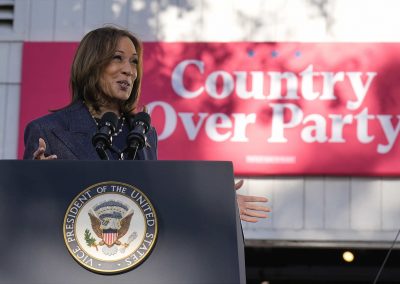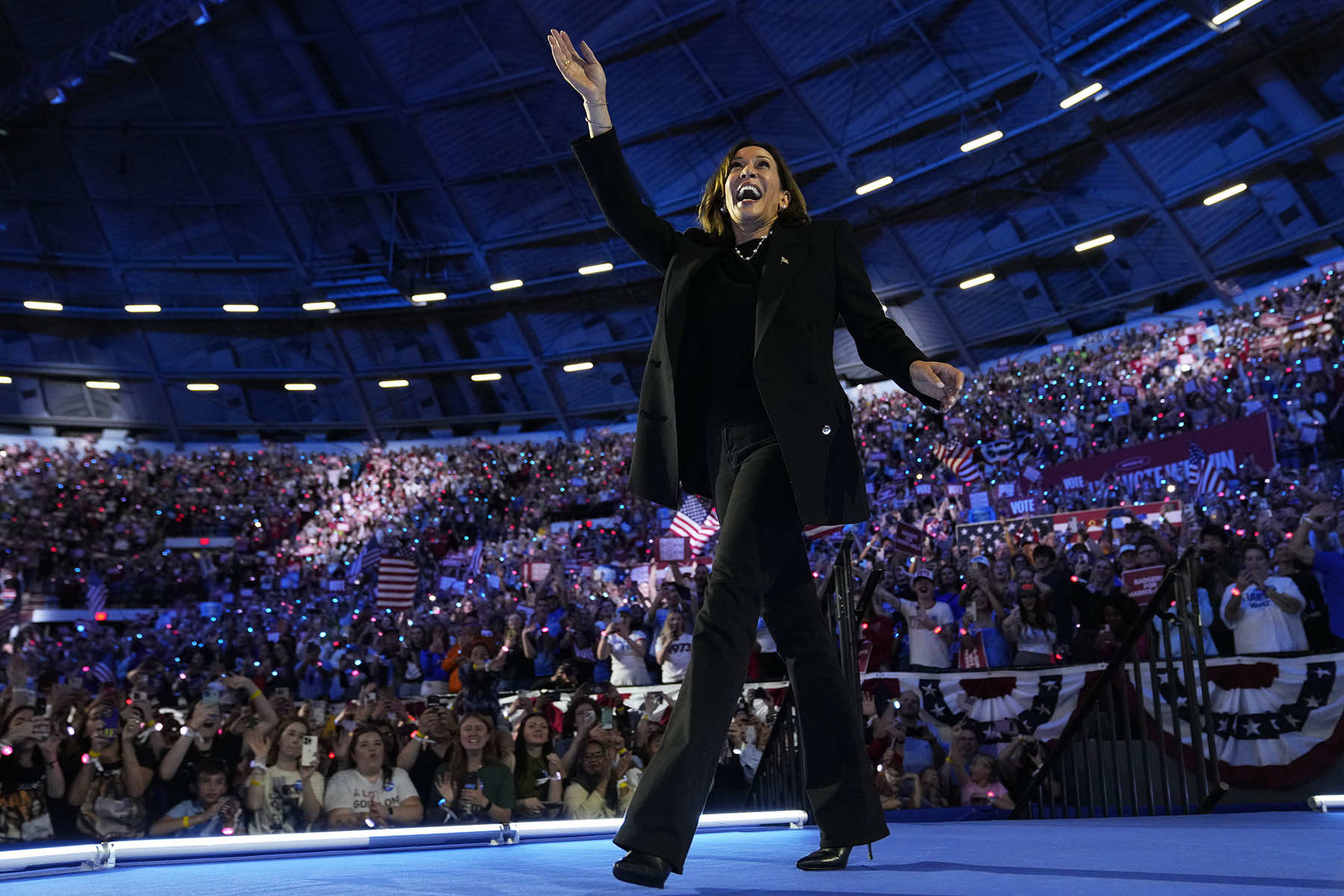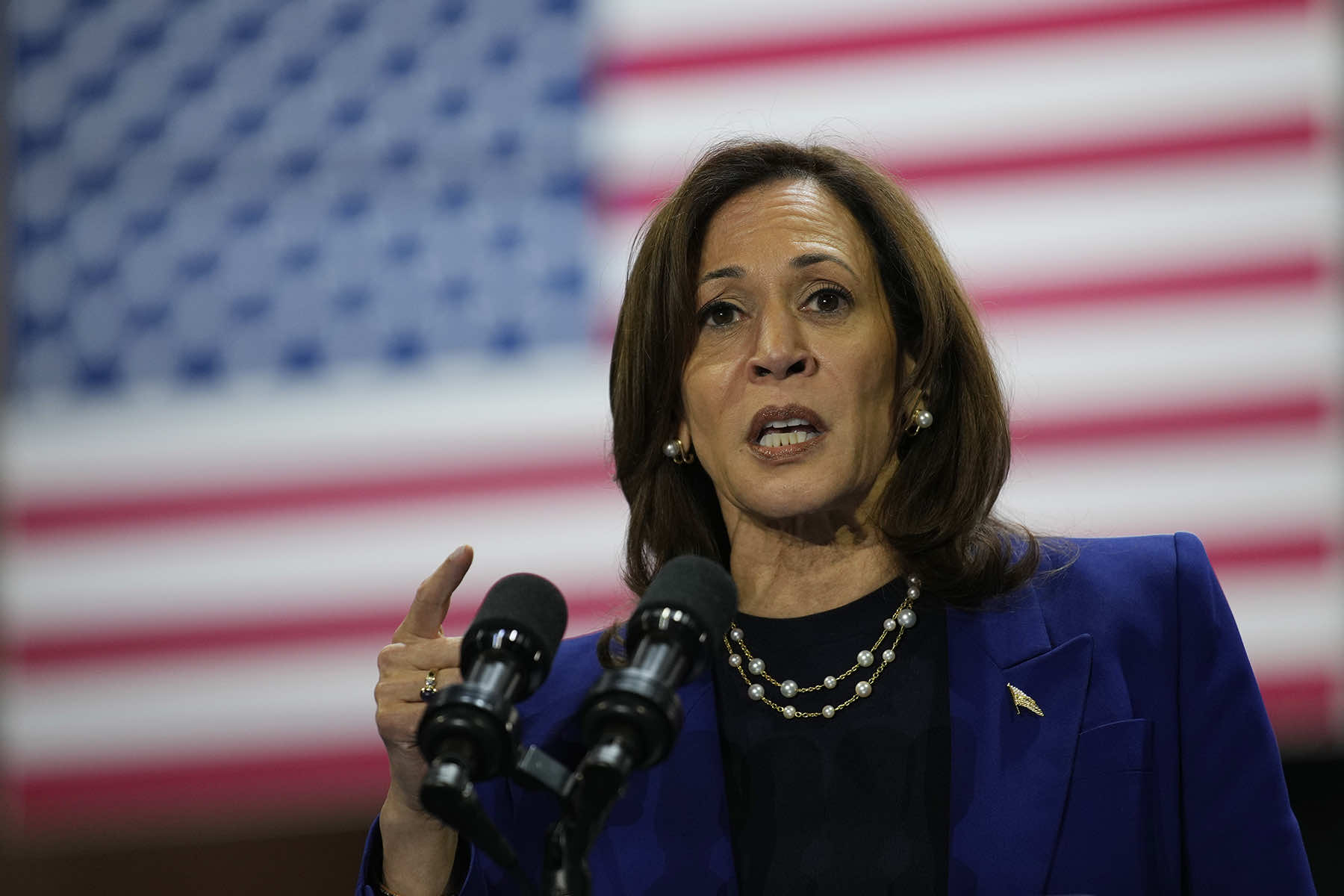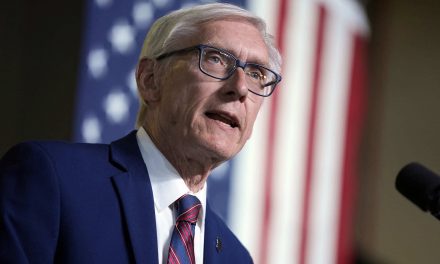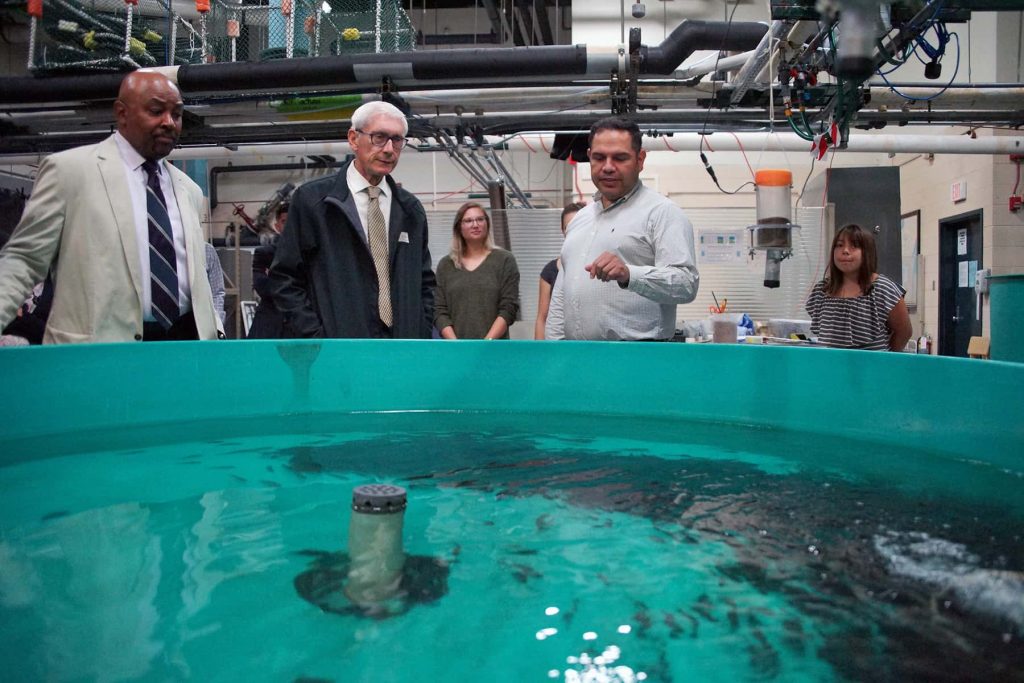
Milwaukee Independent has never endorsed a political candidate in its history, and it may never do so again. However, as major editorial boards like those of The Washington Post and Los Angeles Times buckle under the weight of fear surrounding Donald Trump, the Milwaukee Independent believes that journalistic integrity and civic responsibility demand an active stand. Where others have faltered in their duty to call out the erosion of democratic principles, the Milwaukee Independent editorial board feels compelled to go on record, marking this moment as too critical to remain silent.
Kamala Harris stands as a defender of the freedoms and values that America’s veterans have fought to defend for more than 248 years.
Throughout her career, Harris has shown a deep respect for those who have served, working tirelessly to protect and expand the liberties that veterans and active-duty service members hold dear. Her record includes supporting legislation that benefits veterans and their families, from healthcare access to job opportunities, to ensuring they receive the benefits they earned through their service.
In contrast, Donald Trump’s history is marked by a pattern of disrespect to veterans and their sacrifices. Documented reports of his disparaging remarks toward fallen soldiers, calling them “losers” and “suckers,” have shocked many Americans and veterans alike. That sentiment stands in stark opposition to the honor and dignity America’s heroes deserve. For those who have risked their lives for the nation, Trump’s language and actions have left a sour legacy, devaluing the very freedoms they fought to protect.
Harris emphasizes policies that honor the service of veterans and actively protect their rights and their welfare. She has worked to provide support for veterans struggling with mental health issues, homelessness, and the transition to civilian life, recognizing that honoring veterans goes beyond ceremony – it is about real, lasting support.
Her commitment reflects a deep respect for the military community, aiming to make sure America upholds the freedoms they fought for. For those who hold veteran values close, Harris offers a vision for a country where the sacrifices of military service are honored with concrete action and genuine respect.
EXPERIENCE AND COMPETENCE
Harris has a long history of public service, serving as District Attorney in San Francisco, Attorney General of California, and currently as Vice President. Supporters argue that her extensive experience in law enforcement and governance, particularly in large, complex roles, equips her to make informed, effective decisions at a national level.
NATIONAL SECURITY AND FOREIGN POLICY
As Vice President, Harris has been involved in various international discussions and decisions, gaining insights into foreign policy and national security. This experience may appeal to Republicans who prioritize strong leadership on the global stage and a firm stance on U.S. interests.
COMMITMENT TO ECONOMIC GROWTH AND JOB CREATION
Many Harris supporters point to her administration’s economic agenda, highlighting job creation, investment in infrastructure, and support for small businesses. These points often resonate with Republicans who focus on policies that aim to grow the economy and support local businesses.
LAW AND ORDER BACKGROUND
Given her years in law enforcement, Harris has an understanding of the importance of public safety, an area often prioritized by conservative voters. Her background could appeal to Republicans who value a balanced approach that promotes safety while also working toward criminal justice reform.
BIPARTISANSHIP AND FINDING COMMON GROUND
Harris’s supporters argue that she has a history of working across the aisle on issues such as criminal justice reform, veterans’ rights, and infrastructure projects. For voters who desire collaboration and bipartisanship in Washington, her supporters believe she brings the potential for uniting the country.
HEALTHCARE AND SUPPORT FOR FAMILIES
Harris has advocated for healthcare access and affordability, aiming to reduce costs and expand options for Americans. While healthcare reform often varies in approach across party lines, many of her policies target issues that affect a wide range of Americans, such as prescription drug costs and support for families.
As a convicted felon, Trump’s history of financial grift began long before his presidency, with a pattern of questionable business practices, from multiple bankruptcies to alleged fraudulent schemes like Trump University. His time in office and the years since have only amplified these pursuits. As president, he directed funds toward his properties, such as charging the Secret Service inflated rates at his hotels, effectively profiting from his role. Since leaving office, Trump has continued to solicit donations from supporters under various pretexts, often channeling these funds to cover his mounting legal fees and financial obligations. This ongoing fundraising, targeting loyal followers who believe they are supporting political causes, has been more focused on sustaining his personal wealth and dealing with his legal battles than on any tangible public benefit. The pattern of self-serving financial schemes reflects his longstanding focus on wealth accumulation, often at others’ expense.
CRIMINAL RECORD AND ONGOING LEGAL ISSUES
Trump faces multiple indictments and criminal charges, with cases that span election interference, classified documents handling, and business fraud. His legal issues not only distract from effective leadership but also raise serious questions about accountability. For a country founded on the rule of law, many voters feel it is unacceptable to have a leader entangled in such controversies, arguing that Americans deserve a president whose focus remains on serving the people rather than navigating personal legal battles.
TRUMP HAS FAILED IN EVERYTHING EXCEPT CHEATING AMERICANS
Trump’s actions have posed a threat to key American institutions, including the Constitution, the free press, and the rule of law. His refusal to accept the 2020 election results and efforts to overturn them challenged the legitimacy of democratic processes and set a dangerous precedent. His repeated attacks on the media, labeling it as “fake news” and an “enemy of the people,” have eroded public trust in journalism, weakening a core pillar of accountability in democracy. These actions have fostered deep social divisions, normalized distrust in government and media, and created a climate where misinformation thrives, leaving a lasting impact on American society and the values it holds dear.
A LONG HISTORY OF RACIST RHETORIC AND DIVISION
Trump’s rhetoric has often targeted racial, ethnic, and religious groups, fueling tensions within the nation. From comments on immigration to responses to social justice movements, critics contend that his divisive language has exacerbated racism and encouraged discrimination. Voters who seek a leader that unites — rather than divides — view his track record on these issues as deeply troubling, arguing that America needs a president who fosters inclusivity and respects all communities.
JANUARY 6 CAPITOL ATTACK AND THREATS TO DEMOCRACY
Perhaps one of the most alarming aspects of Trump’s legacy is his role in the January 6 attack on the Capitol. After losing the 2020 election, Trump repeatedly and falsely claimed election fraud, undermining faith in American democracy. His words helped incite the storming of the Capitol — a direct threat to the peaceful transfer of power, one of the cornerstones of U.S. democracy. This event, along with his rhetoric, has cast a shadow over his commitment to the Constitution and the democratic principles he once swore to uphold. Many voters believe that anyone who encourages or condones attacks on democratic institutions should not be granted the privilege of the presidency.
LACK OF ACCOUNTABILITY AND ETHICAL CONCERNS
Trump’s history has shown a consistent disregard for ethical norms and accountability, both as a businessman and a public servant. His presidency was marked by numerous scandals and the frequent bending of ethical rules, which has left a lasting impact on the perception of public office. Critics argue that a return to ethical standards and accountability is essential for the credibility of American governance.
THE NEED FOR TRUST AND STABILITY IN LEADERSHIP
In times of global uncertainty and domestic challenges, Americans need a leader they can trust to act with integrity and in the nation’s best interests. For many voters, Trump’s past actions indicate an unwillingness to respect democratic institutions, casting doubt on his ability to provide the stability and ethical leadership that the country needs.
At this critical moment, America’s path forward depends on a leader who values truth, respects institutions, and truly represents the country’s ideals. For too long, the nation has wrestled with a legacy of division, mistrust, and disregard for accountability. American institutions were designed to protect justice, equality, and the rule of law. They should be entrusted to someone committed to their purpose, not to personal gain or undermining democratic values. The presidency should be a call to serve, not a stage for self-interest. Our country deserves leadership that embraces this commitment wholeheartedly.
Kamala Harris represents a departure from the chaos and exploitation that have plagued the nation for a decade of the violent Trump years. Her career has been one of service, and her approach emphasizes unity, support for everyday Americans, and respect for the sacrifices that sustain the nation. As citizens of Americans consider the future, the choice becomes clear: to rebuild, heal, and reinforce the values that have long defined this country.
The editorial board of Milwaukee Independent believes that a presidency rooted in respect for democracy and commitment to integrity is not just a preference, it is essential to protecting America’s freedom for future generations.
© Photo
Jacquelyn Martin (AP), Jose Luis Magana (AP), Stephanie Scarbrough (AP), Ben Curtis (AP), John Locher (AP), Hannah Stewart (AP), and Lawrence Jackson (via The White House)

